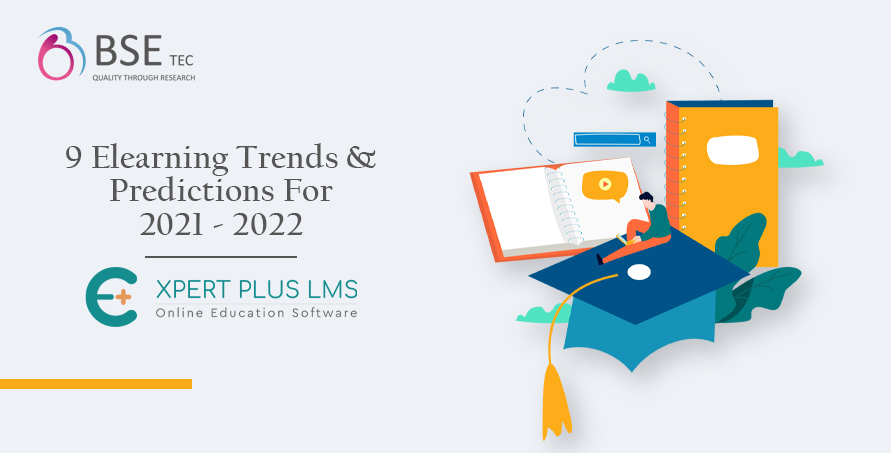9 New Elearning Trends & Predictions for 2021/2022 | Udemy clone App

Elearning began in the 1990s as a way to supplement face-to-face instruction. Elearning management system has evolved into a fashionable technique that outshines the method it was meant to assist throughout the years. Several technological, workplace and eLearning trends have wrought significant changes, exacerbating the decline of instructor-led training, particularly at a time when face-to-face contacts are posing a health risk owing to the COVID-19 pandemic.
There’s no denying that the advantages of eLearning far outnumber those of instructor-led staff training. However, even with the best LMS software, reaping these benefits without an appropriate understanding of the newest eLearning advancements can be difficult. We’ve compiled the most recent eLearning trends in one post to assist you to understand how the landscape is changing. Understanding this can help you offer successful training for staff growth. Furthermore, it will assist you in fine-tuning your staff training tactics to get the required return on investment.
The first and most obvious reason for the rapid growth of eLearning is digitalization. The fast expansion of digital connection, information, and devices has provided eLearning with the necessary impetus to stay afloat. Elearning’s inherent cost-effectiveness and flexibility have also fueled industry development. Furthermore, there is a growing recognition of the importance of eLearning in corporate training.
Some of the eLearning Trends and Predictions
- Mobile Learning – The first and most obvious reason for the rapid growth of elearning is digitalization. The fast expansion of digital connection, information, and devices has provided elearning with the necessary impetus to stay afloat. Elearning’s inherent cost-effectiveness and flexibility have also fueled industry development. Furthermore, there is a growing recognition of the importance of elearning in corporate training.
- Blended Learning – After reopening, the majority of institutions and universities have indicated that they would continue to offer online programmes in the academic year 2021-22. Similarly, most businesses will teach staff while they work from home. As a result, in 2022, they will require LMS systems that enable the blended learning paradigm. The LMS must support instructor-led learning in addition to allowing learners to access multi-format instructional content.
- Multi-format Digital Content – After reopening, the majority of institutions and universities have indicated that they would continue to offer online programmes in the academic year 2021-22. Similarly, most businesses will teach staff while they work from home. As a result, in 2022, they will require best LMS systems that enable the blended learning paradigm. The LMS must support instructor-led learning in addition to allowing learners to access multi-format instructional content.
- Active Learner Engagement – Without a focus on active and effective learner engagement, no organisation can successfully implement web – based learning or online training. LMS solutions with native features and options to enhance active learner engagement will be sought by decision-makers.
- Gamification – In 2022, gamification will continue to be one of the most popular elearning and LMS trends. Gamified learning is helpful in increasing information retention and transfer, in addition to keeping learners interested and motivated.
- Flexible Training Options – Working professionals, unlike students, must gain knowledge while performing their professional obligations. As a result, businesses will seek LMS solutions that support a variety of learning options.
- Micro Learning and Social Learning – Microlearning and social learning are the trendiest elearning developments right now. Educators will continue to use microlearning in 2022 to make it easier for students to learn and remember information. They’ll concentrate on keeping learning units small and delivering instructional information in short bursts.
- Mixed and Extended Learning – According to many experts, augmented reality (AR) and virtual reality (VR) have the potential to radically revolutionise both traditional and online learning. The use of extended reality (ER) technology will enhance the learning experience. Instead of reading or hearing information, learners will be able to gain knowledge through picturing concepts.
- Big Data Analytics – Only by aggregating real-time data from many sources can educational institutions tailor the learning experience of individual pupils. Only by utilising big data analytics will they be able to leverage and operationalize large and diverse data.
Summing up
If you want to create an app like Udemy, then contact BSEtec today for opting Expert Plus LMS which will help you have a great app with a lot of features.




